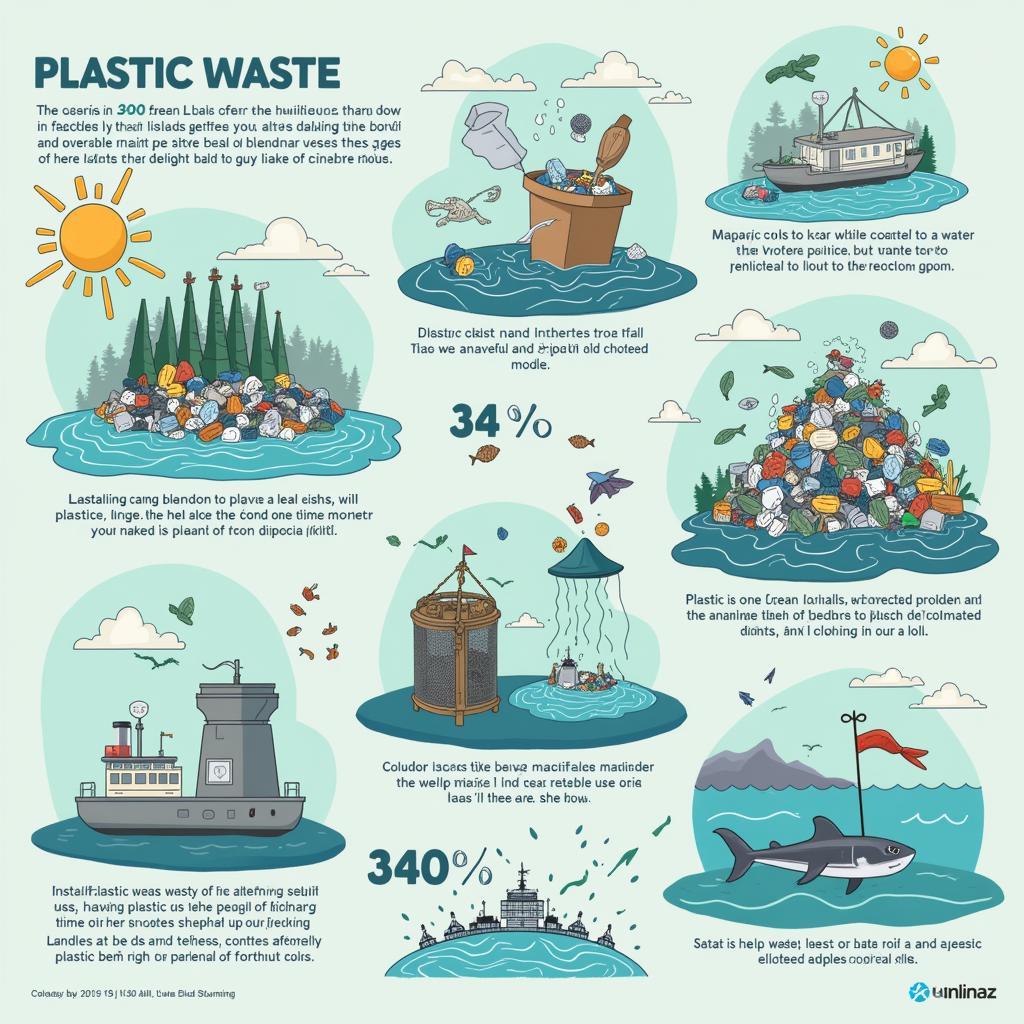The topic of plastic waste reduction has become increasingly prevalent in IELTS Writing Task 2, appearing in various forms across recent test versions. This environmental theme connects closely with impact of plastic pollution on ocean health and often appears alongside questions about consumer responsibility and government intervention.

Recent IELTS Question Analysis
Some people believe that reducing plastic use and waste is the responsibility of individual consumers, while others think manufacturers and governments should take the lead. Discuss both views and give your opinion.
Question Breakdown
- Topic: Plastic waste reduction
- Task: Discussion + Opinion
- Key elements: Individual responsibility vs. institutional action
- Similar to discussions about should recycling be mandatory for households
Sample Essay 1 (Band 8.5)
The debate over who bears primary responsibility for reducing plastic waste has intensified as environmental concerns grow. While some argue that individual consumers should lead this change, others believe that manufacturers and governments must take decisive action. In my view, effective plastic reduction requires coordinated efforts from all parties, with particular emphasis on institutional leadership.
Individual consumers can undoubtedly contribute to plastic waste reduction through daily choices. By bringing reusable bags to stores, choosing products with minimal packaging, and properly sorting waste for recycling, consumers directly impact plastic consumption patterns. This approach, similar to Reducing packaging by manufacturers and supermarkets: discuss both views and give your opinion, demonstrates personal environmental responsibility.
However, manufacturers and governments possess far greater capacity to effect systemic change. Manufacturers can redesign products and packaging to minimize plastic use, invest in alternative materials, and implement circular economy principles. Governments can enact regulations limiting plastic production, implement deposit schemes, and invest in recycling infrastructure. These institutional actions create framework conditions that make individual efforts more effective.
The most successful plastic reduction strategies combine both approaches. When governments regulate single-use plastics and manufacturers offer sustainable alternatives, individual consumers can more easily make environmentally conscious choices. This synergy, as seen in successful waste reduction programs worldwide, demonstrates that shared responsibility yields optimal results.
In conclusion, while individual actions matter, institutional leadership from manufacturers and governments is crucial for meaningful plastic waste reduction. This comprehensive approach ensures sustainable change at both systemic and personal levels.
Sample Essay 2 (Band 6.5)
Plastic waste is a big problem in our world today, and people have different ideas about who should fix it. Some think regular people should change their habits, while others say big companies and the government need to do more. I will discuss both sides and share my thoughts.
Regular people can help reduce plastic waste in many ways. They can use cloth bags instead of plastic ones when shopping, and choose products that don’t have lots of plastic packaging. Also, they can recycle properly and teach their children about being environmentally friendly. These small actions can make a difference when many people do them.
On the other hand, manufacturers and governments have more power to make big changes. Companies can make products with less plastic and use better materials. Governments can make laws about plastic use and build better recycling systems. This is similar to how impact of fast fashion on consumer waste is handled.
I think both sides need to work together to solve this problem. While people should try to use less plastic, companies and governments must take the lead because they can make bigger changes. When everyone works together, we can better protect our environment.
Key Vocabulary
- systemic change (n) /sɪˈstɛmɪk tʃeɪndʒ/ – fundamental transformation of an entire system
- circular economy (n) /ˈsɜːkjʊlə iˈkɒnəmi/ – economic system aimed at eliminating waste
- deposit scheme (n) /dɪˈpɒzɪt skiːm/ – system where consumers pay extra fee refunded upon item return
- infrastructure (n) /ˈɪnfrəstrʌktʃə/ – basic physical systems of a country or organization
- synergy (n) /ˈsɪnədʒi/ – combined effect greater than sum of separate effects
Consider practicing with similar topics like effects of climate change on marine life to broaden your understanding of environmental writing tasks. Share your practice essays in the comments for feedback and discussion.